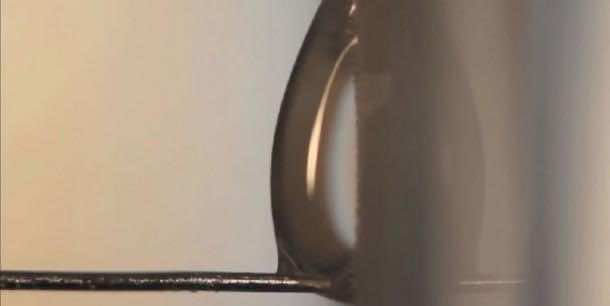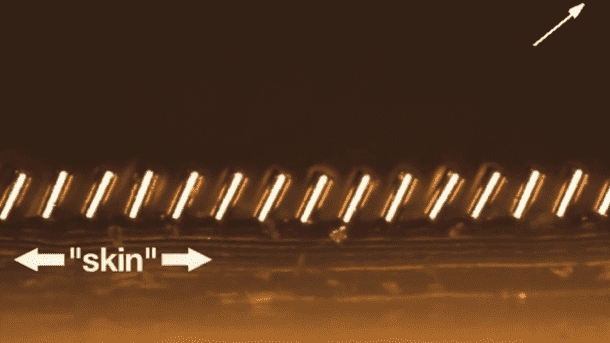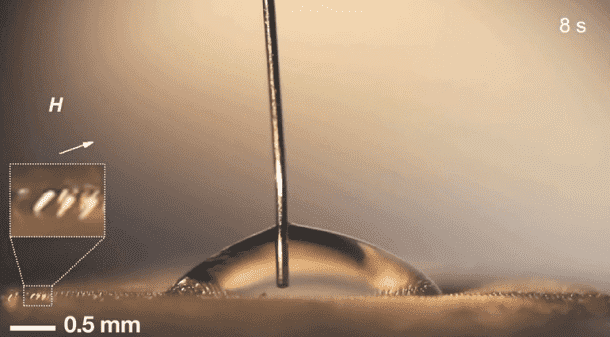You could very well shout out; ‘Optical illusion’ but we assure you that this is real and not just another optical illusion. Yes, scientists have found a way to defy gravity and they did so by making water run uphill. This was made possible by making use of a material that has a number of very small electroplated metal bristles that respond to a magnetic field. A change in magnetic field results in a change in the bristles, subsequently imparting direction to the water that sits on them.
The research comes from MIT and the team foresees the use of this material in creating glare-resistant windows and clothing that will resist rain. The micro-hair is made of nickel and has a height of 70 microns and a width of 25 microns. Comparing it to a human hair reveals that it is about 1/4th the diameter of a human hair. The research team made an assembly of micro-hair that was crafted onto an elastic and transparent layer of silicone.
During the test phase it was discovered that the material, magnetically activated, was also able to direct the flow of light and not just fluid. According to the research team, this research could very well provide a way to making waterproofing and anti-glare products. According to Yangying Zhu, graduate student in MIT’s Department of Mechanical Engineering; ‘You could coat this on your car windshield to manipulate rain or sunlight. So you could filter how much solar radiation you want coming in, and also shed raindrops. This is an opportunity for the future.’
According to Ms Zhu, the inspiration for this research came from nature. In words of Ms Zhu; ‘We see these dynamic structures a lot in nature. So we thought, ‘What if we could engineer microstructures, and make them dynamic?’ This would expand the functionality of surfaces.’ She also said that more complex magnetic fields could be designed and incorporated to come up with more elaborate tilting patterns. The flexibility of the material also allows for it to be incorporated into fabric.
Miss Wang said; ‘A nice thing about this substrate is that you can attach it to something with interesting contours. Or, depending on how you design the magnetic field, you could get the pillars to close in like a flower. You could do a lot of things with the same platform.’


